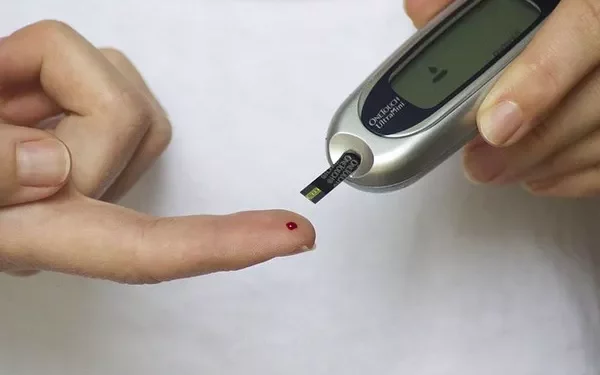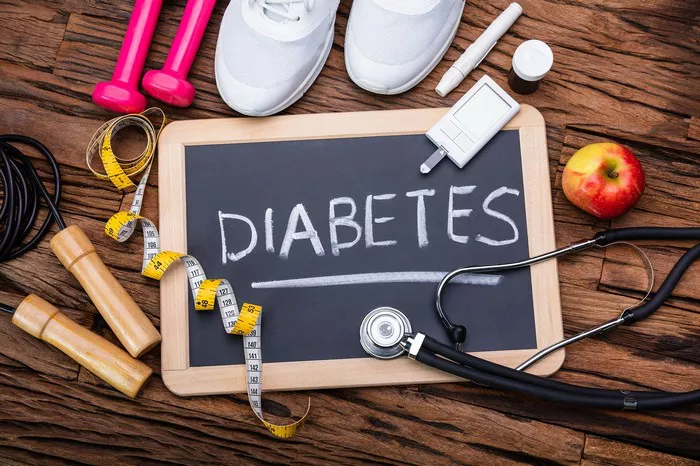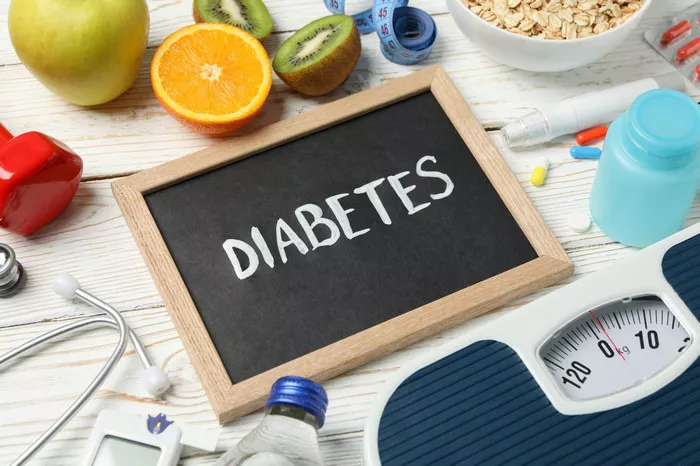Blood sugar monitoring is a vital aspect of managing diabetes and ensuring overall health. Among the various methods of measuring blood glucose, random blood sugar testing is one of the most common. It helps determine how well the body is regulating glucose levels at any given time. In this article, we will explore what constitutes a normal random blood sugar level, factors influencing blood sugar levels, the implications of abnormal levels, and the importance of regular monitoring.
What is Random Blood Sugar Testing?
Definition
Random blood sugar testing measures the glucose levels in your blood at any time of day, regardless of when you last ate. This test is typically done in a healthcare setting, but home monitoring is also possible with portable glucose meters.
Purpose of Random Blood Sugar Testing
The primary purposes of random blood sugar testing include:
Diagnosis of Diabetes: It helps in diagnosing diabetes or prediabetes when abnormal levels are detected.
Monitoring Diabetes Management: For individuals with diabetes, random blood sugar tests help monitor how well the disease is being managed.
Assessing Response to Treatment: Healthcare providers can evaluate how effective treatment plans are by analyzing blood sugar levels.
Normal Random Blood Sugar Levels
Standard Ranges
The American Diabetes Association (ADA) provides guidelines on normal blood sugar levels. For random blood sugar testing, the normal range is as follows:
Normal: Less than 140 mg/dL (7.8 mmol/L)
Prediabetes: Between 140 mg/dL (7.8 mmol/L) and 199 mg/dL (11.0 mmol/L)
Diabetes: 200 mg/dL (11.1 mmol/L) or higher
Understanding the Levels
Less than 140 mg/dL (7.8 mmol/L): This indicates normal glucose metabolism. The body is effectively utilizing insulin to regulate blood sugar levels.
140 to 199 mg/dL (7.8 to 11.0 mmol/L): This range indicates prediabetes, a condition where blood sugar levels are higher than normal but not high enough to be classified as diabetes. Individuals in this range are at increased risk of developing type 2 diabetes and may benefit from lifestyle changes.
200 mg/dL (11.1 mmol/L) or higher: This level suggests diabetes. It indicates that the body is not producing enough insulin or is resistant to insulin, leading to elevated blood sugar levels.
Clinical Diagnosis
To diagnose diabetes, healthcare professionals typically perform additional tests, such as fasting blood sugar and HbA1c tests, to confirm the results of random blood sugar tests. A fasting blood sugar level of 126 mg/dL (7.0 mmol/L) or higher, or an HbA1c of 6.5% or higher, can confirm a diagnosis of diabetes.
Factors Influencing Random Blood Sugar Levels
Several factors can affect random blood sugar levels, including:
1. Diet
Carbohydrate Intake: Foods high in carbohydrates can cause a rapid increase in blood sugar levels. Simple carbohydrates, like sugars, raise blood sugar faster than complex carbohydrates, such as whole grains.
Meal Timing: Eating large meals or having snacks close together can elevate blood sugar levels.
2. Physical Activity
Exercise: Physical activity can help lower blood sugar levels by increasing insulin sensitivity and facilitating glucose uptake by muscles. However, intense exercise can temporarily raise blood sugar levels due to stress hormones.
3. Stress
Emotional Stress: Stressful situations can trigger the release of hormones like cortisol and adrenaline, leading to increased blood sugar levels.
Physical Stress: Illness, infection, or injury can also elevate blood sugar due to the body’s stress response.
4. Medications
Insulin and Oral Hypoglycemics: For individuals with diabetes, medications can help regulate blood sugar levels. Changes in dosage or timing can impact random blood sugar levels.
Steroids and Other Medications: Certain medications can raise blood sugar levels, making monitoring essential.
5. Sleep Patterns
Quality of Sleep: Poor sleep quality can lead to insulin resistance and increased blood sugar levels.
Sleep Disorders: Conditions like sleep apnea can adversely affect glucose metabolism.
6. Hormonal Changes
Menstrual Cycle: Hormonal fluctuations during the menstrual cycle can affect blood sugar levels in women.
Pregnancy: Gestational diabetes can occur during pregnancy, causing elevated blood sugar levels.
Implications of Abnormal Random Blood Sugar Levels
High Blood Sugar Levels (Hyperglycemia)
Hyperglycemia occurs when blood sugar levels are elevated. Symptoms may include:
- Increased thirst
- Frequent urination
- Fatigue
- Blurred vision
- Headaches
Long-term Complications of Hyperglycemia
Persistent hyperglycemia can lead to serious health complications, including:
Cardiovascular Disease: High blood sugar levels can damage blood vessels and increase the risk of heart disease and stroke.
Kidney Damage: Diabetes can lead to diabetic nephropathy, a condition that affects kidney function.
Nerve Damage: Diabetic neuropathy can cause pain, tingling, and loss of sensation in the extremities.
Eye Damage: Diabetic retinopathy can lead to vision loss.
Low Blood Sugar Levels (Hypoglycemia)
Hypoglycemia occurs when blood sugar levels fall below normal. Symptoms may include:
- Shakiness
- Sweating
- Confusion
- Dizziness
- Irritability
Consequences of Hypoglycemia
Severe hypoglycemia can lead to loss of consciousness, seizures, or even death if not treated promptly. Individuals with diabetes should be aware of their blood sugar levels and carry fast-acting carbohydrates to treat hypoglycemia.
The Importance of Regular Monitoring
1. Early Detection
Regular blood sugar monitoring helps detect abnormal levels early, allowing for timely interventions.
2. Effective Diabetes Management
For individuals with diabetes, consistent monitoring can help manage blood sugar levels effectively, preventing complications.
3. Informed Lifestyle Choices
Understanding how diet, exercise, and stress impact blood sugar levels allows individuals to make informed choices to improve their health.
4. Adjustments to Treatment Plans
Regular monitoring provides healthcare providers with essential data to adjust treatment plans as needed, ensuring optimal management of blood sugar levels.
How to Monitor Random Blood Sugar Levels
1. Home Blood Glucose Meters
Selecting a Meter: Choose a reliable glucose meter that meets your needs. Ensure it provides accurate results and has features like memory storage and data sharing.
Testing Technique: Follow the manufacturer’s instructions for testing. Clean your hands, insert a test strip, and apply a drop of blood to the strip.
2. Continuous Glucose Monitors (CGMs)
What are CGMs?: These devices continuously monitor blood sugar levels throughout the day and night. They provide real-time data, helping users track fluctuations in blood sugar levels.
Benefits: CGMs can reduce the number of fingerstick tests needed and provide insights into trends over time.
3. Lab Testing
Healthcare Provider Visits: Regular check-ups with your healthcare provider can include lab tests for fasting blood sugar and HbA1c levels, providing a comprehensive view of blood sugar management.
Lifestyle Changes for Maintaining Normal Blood Sugar Levels
Maintaining normal random blood sugar levels involves a combination of dietary modifications, physical activity, stress management, and regular monitoring.
1. Healthy Eating
Balanced Diet: Incorporate a variety of foods, including whole grains, lean proteins, healthy fats, fruits, and vegetables.
Carbohydrate Counting: Understanding how carbohydrates impact blood sugar levels can help with meal planning.
2. Regular Exercise
Aim for Consistency: Engage in at least 150 minutes of moderate-intensity aerobic activity each week, along with strength training exercises.
Incorporate Movement: Look for opportunities to be active throughout the day, such as taking walks or using stairs.
3. Stress Management Techniques
Mindfulness and Relaxation: Practice mindfulness, meditation, or yoga to reduce stress levels.
Engage in Hobbies: Find activities that bring joy and relaxation to help manage stress.
4. Adequate Sleep
Prioritize Sleep: Aim for 7-9 hours of quality sleep each night to support overall health and glucose metabolism.
Establish a Sleep Routine: Create a calming bedtime routine to improve sleep quality.
5. Avoid Smoking and Limit Alcohol Intake
Quit Smoking: Smoking can worsen insulin resistance and increase the risk of complications.
Moderate Alcohol Consumption: If you drink alcohol, do so in moderation, and monitor its effects on blood sugar levels.
See also: What is the Normal Sugar in the Blood?
Conclusion
Understanding normal random blood sugar levels is crucial for maintaining overall health and preventing the progression of diabetes. Regular monitoring, combined with a healthy lifestyle and informed dietary choices, can significantly impact blood sugar management. Individuals at risk of diabetes should take proactive steps to monitor their blood sugar levels and work closely with healthcare professionals to develop effective management strategies. By prioritizing health and making informed choices, individuals can lead a balanced and fulfilling life while reducing the risk of diabetes-related complications.
Related topics:
How Long Can You Wear a Glucose Monitor?



























